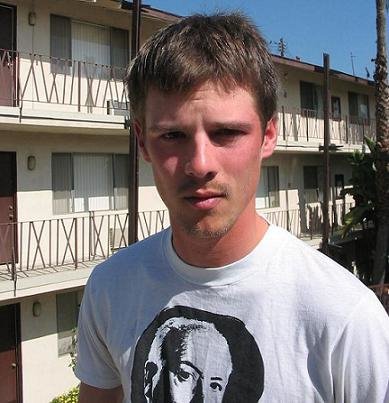Sky Captain and the World of Tomorrow (2004)
Directed by Kevin Conran
Starring: Jude Law, Gwyneth Paltrow, Angelina Jolie, Giovanni Ribisi, and Sir Lawrence Olivier (no I am not kidding)
I went and saw SCatWoT Saturday. Other than that it was a pretty good day.
-N
Okay just kidding. Here is the real review. If you like Max Fleisher's Superman, or the original King Kong, or Flash Gordon... Go rent those movies. Unless you have a cheapo way of gaining admission rent this sucker. You're wallet will love you more for it.
Yes, this movie is visually fantastic. Yes its references are great. I love that stuff too. Max Fleisher, King Kong, THX 1138... yeah. All good. But dude, you really need an emotional connection. Otherwise its all a bunch of pretty imagery. Hooray. So... when we have a movie that is pretty but you just don't give a damn what happens? We Make Fun of the Movie! And with all the phallic sky rockets and endless King Kong references... well the jokes just wrote themselves folks.
The biggest obstacle for me was the chemistry, or lack there of, between Jude Law and Gwyneth Paltrow. Dead. Dead like a fish. There was more heat in the A/C unit of my truck. Second, NO VILLAIN! Yeah... we had the nameless doctor whose Great and Powerful Oz head was digitally played by Sir Lawrence Olivier(keep in mind, he died in 1989) and a bunch of robots... That's it. Robots. Big Digital robots. Yes, they destroy and threaten the populous, but I felt no terror. No nothing. Blah.
Oh sure Bai Ling played a silent black clad clandestine assassin. This trick worked about as well as Darth Maul in Episode One. In New Hope the Empire Blows up a planet. In Phantom Darth Maul has a double bladed Lightsaber. Cool. But not scary. Same here. Bai Ling kicks the crap out of Law, and can apparently fly. But not scary. Maybe if she had talked. Or something. I would have killed for an insidious scientist cackling. OR even a Bond villain. SOMETHING. Instead... I got THIS!
Save yourselves folks. Save yourselves.

